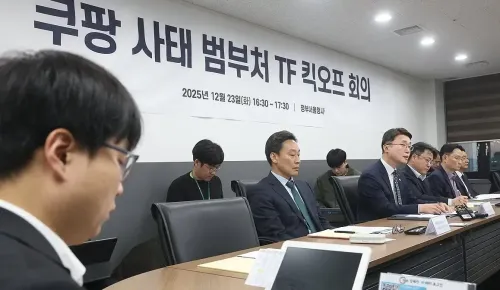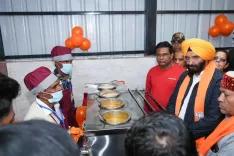Is the Government Waiving the Mandatory Re-labeling of Medicines After the GST Rate Cut?

Synopsis
Key Takeaways
- Government waives mandatory re-labeling for drugs released before September 22, 2025.
- GST on medical devices reduced from 12% to 5%.
- Manufacturers must ensure price compliance at the retail level.
- Aimed at reducing supply chain disruptions in the pharmaceutical sector.
- AiMeD recommends further GST reforms to improve industry conditions.
New Delhi, Sep 16 (NationPress) In a significant development for the pharmaceutical industry, the government has eliminated the mandatory requirement for drug manufacturers to recall or re-label medications that were already on the market prior to September 22, according to the Department of Pharmaceuticals.
This decision comes in light of the recent adjustment in the Goods and Services Tax (GST) rates made earlier this month by the GST Council, which lowered the GST on medical devices from 12 per cent to 5 per cent.
The National Pharmaceutical Pricing Authority (NPPA) clarified in an Office Memorandum that companies may comply with the new regulations by ensuring that the updated pricing is visible at the retail level.
“All manufacturers and marketing firms selling drugs and formulations must revise the Maximum Retail Price (MRP) for drugs and formulations, including medical devices. They must provide a revised price list or supplementary price list to dealers and retailers for consumer display, as well as to State Drug Controllers and the Government, reflecting the revised GST rates and MRP,” stated the NPPA.
“There is no obligation to recall, re-label, or re-stick any labels on products released before September 22, 2025, if manufacturers and marketing companies can guarantee price compliance at the retailer level,” according to the FAQs shared by the Finance Ministry.
The pharmaceutical sector had previously raised alarms regarding the practical challenges and expenses associated with recalling and re-labeling medicines that were already in circulation.
The new policy allowing revised price lists is anticipated to mitigate disruptions in the supply chain, ensuring that patients do not encounter shortages of essential medications due to technical labeling requirements.
Retailers will now be tasked with displaying the updated price lists, making it easy for consumers to access medicines at the revised prices without any confusion.
Additionally, the Association of Indian Medical Device Industry (AiMeD) has presented recommendations to the Union Finance Minister and GST Council Chairperson Nirmala Sitharaman, advocating for balanced GST reforms.
AiMeD highlighted that further reforms are necessary to tackle ongoing issues such as working capital stress, inverted duty structures, and limited refund eligibility.
Proposed key reforms by AiMeD include simplifying the GST refund mechanism by expanding refund eligibility to Input Tax Credit (ITC) on services and capital goods, which are currently excluded.
Furthermore, it proposes a uniform 5 per cent GST rate on inputs; amending Rule 89(5) to include ITC on services and capital goods; and implementing automated, time-bound refunds to introduce provisional 90 per cent refunds within strict timelines to enhance liquidity for manufacturers.
“Global best practices in countries like Australia, New Zealand, Canada, and the EU allow full refunds or carry-forwards of unused GST/VAT paid on inputs, including services, ensuring that exporters and businesses with inverted duty structures do not face cash flow issues or tax cascading,” remarked Rajiv Nath, Forum Coordinator, AiMeD.
“India must embrace similar reforms if we are to reduce healthcare costs, strengthen the Make in India initiative, and boost global competitiveness,” he concluded.










